Speaker 1: So it's the beginning of the school year, and it's the second full day that I have students.
Thank You.
Today's lesson was really about first steps in students getting to know other students.
So I'm going to tell you a little story. Okay? Little story.
I start by telling them a story about why I think it's important for us to get to know each other.
One day, I'm kind of busy in class and I asked for some help to hand back some papers, and nobody will help me.
And it was interesting. They knew right away why nobody would hand out the papers.
You know, I've completely overlooked the fact that I maybe know all of you, but you don't know each other.
When I start by telling them this little back story, that gives students a very authentic purpose for the work that we're about to do.
We're going to spend some time getting to know other people in this room, but I want to make sure that the way we do it is really as meaningful as possible, and that we do it in a way that also gets us to practice a lot of the skills that we just have to do in this class anyway.
Throughout the course, I'm asking students to do complex work in these groups, and I will deliberately change those groups every couple of weeks so students are constantly working with other people. In order for that to work, they have to learn more than each other's names. They have start to create a sense of trust with the other people in the room, and I just take a nod from the Humans of New York concept.
The backstory is, the man who runs it, he wanted to take pictures of and interview 10 thousand random people. So we're going to take a look here. I'm just going to ask you to tell me when to pause, and then I'm going to read some stories.
Before we looked at the actual Humans of New York examples, I posed a question to the students, asking them to think about what questions he must have asked in order to get those responses from the people that he interviewed, which creates an opportunity for students to construct their own understanding about the work in front of us.
"I'm 90, but I feel like I'm 50."
"I don't think I'm going to miss 8th grade. It's been a tough year."
"This is a picture of me before I lost my job."
"My father immigrated from Pakistan in the 80's. He worked hard so that I could have a better life."
"Okay, if I asked you with some people close to you that you could just brainstorm maybe a list of the kinds of questions you think he must ask in order to get this information from people, then we'll work on making a list together as a class."
Students: What do you do for a living? Asking question, what do you go through in your life every day?
Biggest motivation in your life right now, and the most impactful moment they've experienced recently.
How did you get to this point?
Speaker 1: "Alright, so what did you come up with?"
Students: What's your biggest regret in life?
Speaker 1: Biggest regret.
Students: How did their past shape them into who they are?
Speaker 1: Could I say, "Influenced you?"
The reason why I'm kind of asking to revise that is because sometimes if we ask a really big question, people won't know how to answer it, so if we ask really big questions like, "What's your philosophy of life?"
They're like, "I don't know. I don't know."
But if you ask, "What's one thing you really believe in," you're probably going to get their philosophy of life. Do you see what I'm saying. So sometimes, you've got to ask questions that are a little bit more specific even though the goal is to get that big one at the end.
And so, we kind of have to ... You don't want to start with the big ones. How else can you get into a conversation?
Students: Be like, "Tell me something about you.'
Speaker 1: Tell me something about yourself.
Students: Let them start it.
Speaker 1: Absolutely. Let them start it.
Another really important thing that he does is he starts with observations. Okay. He starts with observations. And a lot of times, that can start a conversation.
So if I'm meeting somebody and I'm introducing myself, I might start off saying ... So if I'm meeting Stone, I might say, "You know, that's a really interesting first name. Is there a story behind that? Where does that come from?"
So a lot of times, you start with something that comes from that initial meeting.
The work that we did today in looking at the Humans of New York as an example gives us entrance into the next step. We then spend time doing interviews of other people in the classroom, 10 minutes or so of class, for about the next 10 to 14 days.
Alright. I think we should try one.
I actually think one of the most important components of this lesson is at the very end when I model one of these conversations, because it's one thing to investigate the Humans of New York. It's one thing to come up with a list. It's really a different thing to see it in person.
What do you think the goal of the conversations that you're going to have with each other would be?
Students: To know them.
Speaker 1: To get to know.
And of course, everybody in here gets to decide how much they reveal or not reveal. That's totally up to you, but the goal is to uncover a story. I think I have enough time to do a practice one with somebody. Can somebody do it? I think it would be good for all of us. Laul, you'll do it? You'll be interviewed?
So as you are listening and watching, I really want you to pay attention to this conversation. What you are going to take notes on are specific quotes that you would pull out. I'm not going to expect you to necessarily pull out a long paragraph story of everybody, like in the Humans of New York, but I am going to ask you to be able to pull out a sentence or two from everybody that you interview. Alright?
Laul, it's nice to meet you. I'm Sarah Wesley. We know each other a little bit already, but we kind of can get to know each other a little bit better. So tell me, how was your summer?
Students: I became a stay at home dad for a while.
Speaker 1: Can you tell me about this?
Students: I have a little brother who was just recently born-
Speaker 1: Even though I'm modeling one of these interviews or conversations with another student, I really want everybody else in the room to be paying attention. So we'll practice focusing on pulling important quotes or textual evidence, which is really important in an english classroom, so they're going to learn how to extract the most important words from the interviews as they do them.
Have you felt like you have lost more or gained more from this experience?
Students: Oh gained, definitely.
Speaker 1: Really, because I think a lot of people your age might say they felt like they lost time with their friends or they lost time to be independent? Tell me about what you gained.
Students: I guess I gained more responsibility and learned to manage my time more.
Speaker 1: Did any of you hear anything that you thought would be good?
Students: What he gained from the experience.
Speaker 1: Absolutely. Absolutely.
Students: He was kind of a father to his brother for a bit.
Speaker 1: Yeah.
Even before I have students actually start to interview each other, I will also remind students about a couple of really important things about having a conversation.
Okay, we're going to start like this, "Hi, I'm Ms. Wesley."
Students: Hi, I'm Jayden.
Speaker 1: First of all, this is not an assignment. This is a discovery.
What kind of music do you like?
Students: I usually listen to heavy metal or some kind. Metal core, death metal.
Speaker 1: See, that's hard for me.
Students: Most people don't understand it, but for me, it's actually a coping mechanism.
Speaker 1: Students need to pay attention to the person they're sitting across from.
How did you come across it?
They can have some questions that they can choose from in order to keep this conversation going, but I will also tell them that when they have this moment where they ask the best question of the interview, it will be because they listened.
"I'm a single father. I've had my son since he was two."
So the importance of talking about story, telling story, listening to story is really about understanding how much we are connected instead of how different we are.
Alright. Give him a hand. That was awesome.

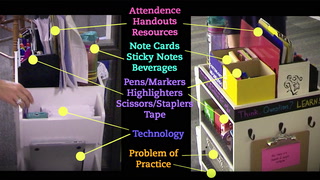
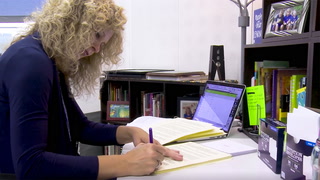
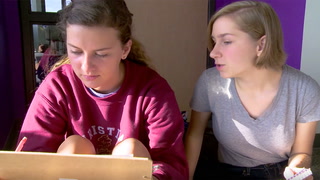
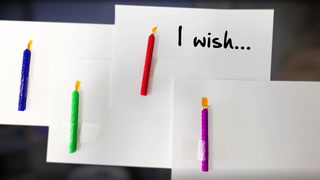
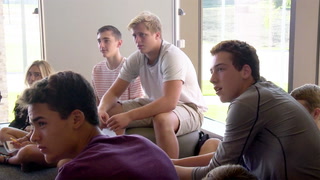
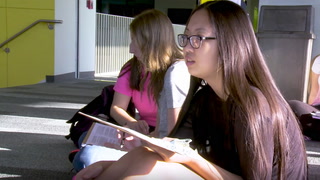
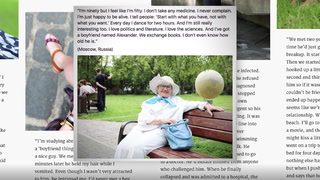
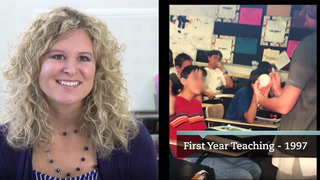









8 Comments
Erin Sullivan Jan 21, 2021 3:36am
This is such a fabulous way to begin the year. I am going to do this with my Year 11 Ancient History class this year. We look closely at stories in History and it's also so important for students to be working collaboratively throughout the two years they are together. Thank you for this idea.
Michael Stires Jun 15, 2020 5:13pm
Story telling lays the foundation for building trust amongst the students and teacher relations by having them share an experience or story that allows others to understand who their peers are. Having students analyze articles from the Humans of New York project sparks critical thinking to better understand the way they word questions is the direct prompt to how the different answers are responded. Ms. Wessling does a great job giving an example when she interviews a student and conducts questions in a way that correlates with the model method. After the interview was over Ms. Wessling does a great job breaking down every aspect of the model she used and the method behind it.
Michael Burnett Jun 12, 2020 4:24pm
The story piques interest, and also gives a more personal approach to a lesson based on getting stories from interviewees.
The students learn how to analyze answers in the article to determine what questions were possibly asked in the interviews. This is to help them develop their own interview questions and think about how properly worded questions prompt different answers.
She interviews a student, showing the proper method, and then breaks down the process with the class aferwards. This allows her to point to moments in the interview to pay attention to, or to also use.
Regina Johnson Jul 3, 2019 2:16pm
This is not only a great way to create a sense of community in the classroom, but it's a great way to introduce the key ideas of textual evidence and inferences. I love that every student has time in the spotlight.
Mary Bhambra May 14, 2019 4:47pm
It's important to build trust in the classroom, and teachers can achieve this by having students share some story or experience about themselves to their class-mates.
Its always a good idea to pull out quotes or textual evidence to authenticate what you say. This is an important in student responses whether in an essay or the real world.